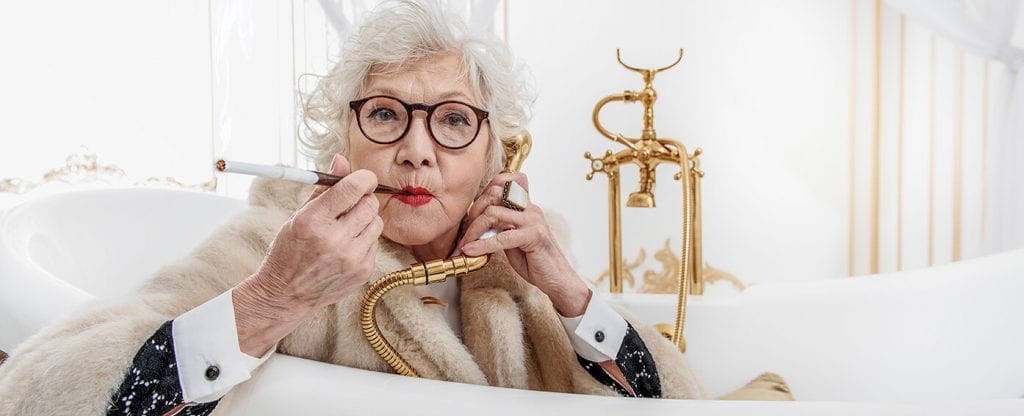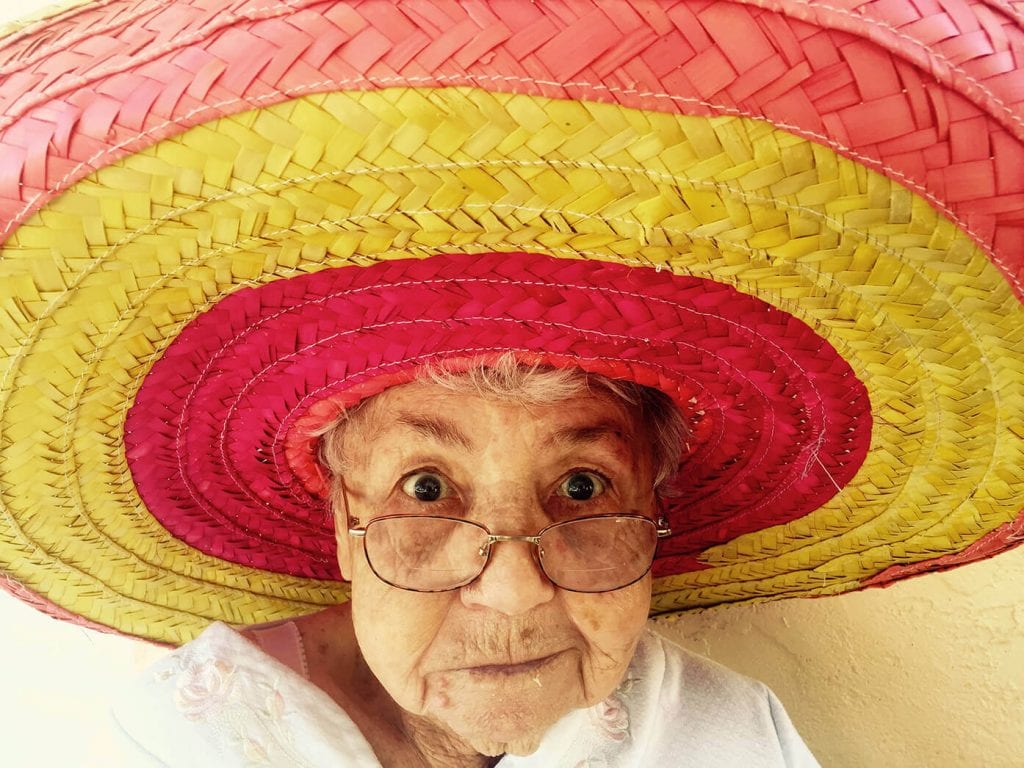
“So many tangles in life are ultimately hopeless that we have no appropriate sword other than laughter.” –Gordon Allport
If you’ve ever been a caregiver, you no doubt understand tangles. Simple relationships become complicated, up-ended or reversed. Watching someone lose who they were and knowing there is little you can do to change that is heartbreaking.
But even if we’re knee-deep in one of life’s most difficult circumstances, is it still possible to find a lighter side? Yes. And sometimes even laughter – if we search hard enough.
Being able to see the funny in our situation is a challenge and it won’t cure dementia or the downside of aging. But according to the Alzheimer’s Association, it’s a power that shouldn’t be overlooked. Here are some of the ways where even brief moments of happiness can help.
How humor can benefit the cared for:
Allows the redirection of negative emotions
Eases symptoms of depression
Tempers signs of aggression
Reduces stress
Improves social interaction
Helps maintain dignity
How humor can benefit the caregiver:
Relieves stress
Promotes mental health
Strengthens family relationships
Strengthens the immune system
Eases tension
Lightens the mood
Allows time for enjoyable moments
I became the caregiver of my 86 year old aunt when she was diagnosed with dementia. Her doctor told me it was important to meet her where she was and not try to orient her back to my reality.
There were times when my aunt seemed to travel effortlessly between worlds – the one we both shared and the one that left me behind. I tried to keep up as she started having animated conversations with those no longer with us. And one memory I’ll always treasure is the night she looked so deeply into my eyes and said how much she loved me.
But dementia robbed both of us along the way. She was frustrated when she believed I had let someone put a secret door into the house that only she could see. And she grew angry with me, a first for us, when I tried to explain late one night that we couldn’t ask the next door neighbor to take us somewhere safe in his taxi. He didn’t own one. I would have done anything to protect her. But I didn’t know how to fight back when these attacks were all coming from within. What sword could I use?

At a hospital where she was being diagnosed, one day I found her wearing a man’s oversized pair of glasses that magnified her own eyes. It was the first time something had seemed remotely humorous in this whole situation, but it didn’t seem right to laugh. So I held it in.
While another patient handed me a cordless phone requesting I fix the remote because it wouldn’t change the television channels, I tried to convince my aunt to take the glasses off. Yet this woman, who now bore a striking resemblance to Mr. Magoo, refused, even as she complained that she couldn’t see a thing. I felt like I was failing at being in their worlds but when a woman carrying a doll grabbed my bag off of the chair and ran, I chased. I guess it was easier to jump into that moment as she now had my money, phone, and the keys to both my car and the hotel room where I was staying.
And we hadn’t even made it to noon.
When my aunt asked me to stay for lunch, I joined in but the man sitting to my right soon accused me of eating his pudding. Trying to meet him where he was, I apologized and offered him mine. But then my aunt introduced me to another older gentlemen at our table, who she said used to be her mailman when she and my uncle lived out in the country. Twenty-five years ago.
If only for a brief moment, I felt a little like my old self. And the best part was I felt connected to my aunt again and that was priceless.
Trying to be present, I smiled politely at him and said what a small world it was. But then he asked if I remembered the neighbors who lived down the road with all the cats, which I did, and how my aunt and uncle’s collie would meet everyone at the end of the drive, which he would. I was stunned as it suddenly dawned on me that this man was indeed her old mailman.
And then I started to laugh. Not at them, but at myself and how ill-equipped I felt to handle our new normal. Yet mostly at how hard I was trying to make sense of this unfamiliar world that made no sense. Because just when you think you have it figured out, sometimes it really is the mailman.
The more I tried to stop, the more I laughed. But what happened next was also unexpected. My aunt started to laugh. And then the mailman. And the next thing I knew, the man next to me who was now eating my lunch joined in, as well as the others at the table. If only for a brief moment, I felt a little like my old self. And the best part was I felt connected to my aunt again and that was priceless.
What has happened to our loved ones will never be funny. And there’s a big difference between laughing at the circumstance and laughing at someone else’s expense. But we need laughter even more when caregiving. If only for a moment, it can bring joy into our lives again.
If you find yourself short on humor, here’s a few places to look.
Try laughter yoga. Not only will you laugh, but you’ll get in a workout
Now more than ever, make sure you spend some time with the funniest person you know
Read humorous books or watch funny videos and movies
Find a comedian who appeals to your sense of humor and watch recorded routines whenever you get a chance
And when you’re with your loved one, look back on funny moments in your lives and relive them together
So the next time you find yourself trying to hang on, look for something that can make you smile and share it, if possible. And don’t feel guilty about finding a little humor poking through, even on the hardest days. Treasure it. Caregiving is exhausting and often heartbreaking and sometimes the only sword you can find to fight your way through is laughter – which might just be more powerful than you think.
©2011-2025 Worthy, Inc. All rights reserved.
Worthy, Inc. operates from 25 West 45th St., 2nd Floor, New York, NY 10036